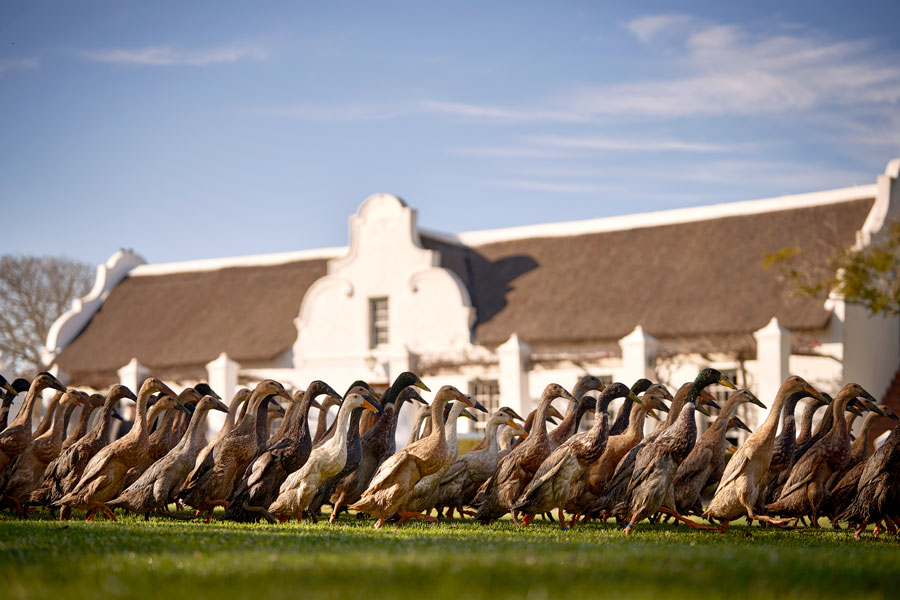Indian runner ducks form key part of vineyard’s sustainability
21st November 2023
The Vergenoegd Löw Wine Estate in South Africa says its flock of ducks contribute a balanced, healthy ecosystem in its vineyards – as well as adding an air of ‘intrigue and charm’ to the estate.

The Indian runner ducks at Vergenoegd Löw Wine Estate form an important part of its sustainability mission, eating snails and other insects so the vineyard can avoid using pesticides.
As they roam freely around the estate, which is just outside Cape Town, foraging and nesting around the vineyards, they are also popular with guests at Vergenoegd’s spa and restaurants.
Gavin Moyes, the estate’s tasting room manager, told Atlas Obscura: “We started off with chickens, but they proved not to be so efficient. The ducks, however, love eating snails and mosquito larvae, and when they defecate on the field, their dung helps our vines grow.
“It helps us on our way to being 100% pesticide and fertiliser free.”
The estate has 10+ varieties of duck, with the flock numbering nearly 2,000 in total. They live in smaller flocks around the lake and have dedicated full-time carers, Moyes continued.
They get “annual leave” around harvest time to ensure they don’t eat the grapes rather than snails.
Vergenoegd also keeps geese as protectors for the ducks, which have no defence mechanisms and are easily scared. Moyes said the geese “go completely crazy when a mongoose or an owl approaches and scares them away. It’s a natural relationship that works very well”.
Vergenoegd has been making wine for over three centuries and aims to leave as light a footprint as possible, using low-water drip irrigation systems, composting and solar energy as part of its sustainability drives.
